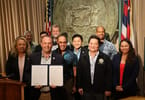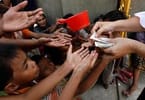d' UNWTO beschriwwen huet the current pandemic as the worst crisis that international tourism has faced since records began in 1950. It has been projected that for 2020, between US$910 billion to US$1.2 trillion will be lost in export revenues from tourism and 100 to 120 million direct tourism jobs are at risk as a result of international travel restrictions and reduced global demand.
From the perspective of the Caribbean, The Economic Commission for Latin America and the Caribbean has stated that the pandemic is affecting the economies of Latin America and the Caribbean through external and domestic factors whose combined impact will lead to the most severe contraction that the region has experienced since records began in 1900.
The tourism sector has unfortunately borne the blunt of this contraction. Caribbean tourism is expected to contract by 20-30 % this year with tourist arrivals dropping by 75% in the last 3 quarters of 2020. This contraction in tourism is sharply slowing economic activity in the Caribbean with growth projected to contract by 6.2 percent in 2020. The recovery of tourism will crucially depend on how and when borders are opened across the world.
Leading Recovery Efforts
d' Global Tourism Resilience & Crisis Management Centre (GTRCMC) is tasked with leading the Caribbean region’s recovery efforts. Looking towards the future, the GTRCMC will continue to strengthen collaboration with its network of local, regional, and international partners to mitigate the impact of the pandemic on destinations as well as to identify effective strategies for their recovery and to enhance their preparedness and responsiveness to future shocks. The Centre recognizes that the timely recovery of tourism is crucial to the overall economic stability of the region. The socio-economic fallout from any prolonged disruption to the tourism sector will likely produce dire consequences for the Caribbean.
The International Labor Organization (ILO) describes tourism as the major source of revenue and jobs in the Caribbean region. Before the pandemic, the tourism sector supported 16 out of 28 economies in the Caribbean. The Caribbean is, in fact, the most tourism-dependent in the world with 10 of the 20 most tourism dependent countries in the world being located in the region led by The British Virgin Islands with 92.6 % dependence. The travel and tourism sector contributed nearly US$59 billion to the gross domestic product of the Caribbean in 2019. On average, the tourism industry directly contributes up to about 33 percent of Gross Domestic Product (GDP) and over 52 percent of export receipts. In Antigua and Barbuda, tourism accounts for 54% of GDP, 42% in Belize, 41% in Barbados, 38% in Dominica, and 34% in Jamaica.
The industry provides direct employment to 413,000 workers in the Caribbean, representing, on average, 18.1 percent of total employment. When indirect and induced employment is factored in, this estimate could rise to 43.1 percent with a distribution skewed upward in tourism-dependent Eastern Caribbean countries. In terms of direct employment,48% of persons employed in Antigua and Barbuda work in tourism-related activities, 41% in Barbados, and 31% in Jamaica.
Tourism is also aligned with many of the key targets of the Sustainable Development Goals Agenda. Tourism is a labor-intensive sector that creates jobs for people of all ages and skills levels not only in the sector but through its value chain in many other sectors such as cultural industries, agriculture, construction, manufacturing, transportation, handicrafts, health, financial services or information, and communication technologies. Tourism also contributes to gender equality by supporting the economic empowerment of women. Caribbean tourism sees a predominance of female employment, between 50 and 60 percent. Tourism also helps to accelerate community development by engaging local populations in its development and giving communities the opportunity to prosper in their place of origin. The current downturn has undoubtedly left many communities in and around resort areas facing unprecedented economic dislocation.
Global fallout
Tourism-dependent economies such as those in the Caribbean are obviously being disproportionately impacted by the socio-economic fallout from the current global crisis. The Caribbean region has limited social safety nets. This means that the people of the Caribbean, the economy, and the future are far more likely to be decimated by COVID-19 than nations with more diversified economies. Across the region, unemployment and underemployment are soaring as thousands of industry workers have been laid off while others continue to work irregularly under conditions of drastically-reduced hours and salaries. The ILO states that almost half a million tourism workers are now facing the prospect of decent work deficits in the form of job loss, reductions in working hours, and loss of incomes.
Unfortunately, the governments of the Caribbean are unable to offer wage subsidy furlough schemes like their more developed counterparts such as the UK and the US. This further compounds the problem. The impact of tourism decline in the region has been made worse by the fact that other key sources of incomes/revenues, foreign direct investments, and remittances are also at risk given that primary suppliers – the United States, the United Kingdom and Canada – are also facing economic shock.
The sudden, deep, and likely prolonged downturn in the travel and tourism sector has made Caribbean countries that rely heavily on foreign tourism very concerned about their finances. Declining tourism revenues mean that governments will become increasingly unable to raise adequate revenues to finance their budgets and will have to rely more on international assistance and loans, which spells further trouble considering the region’s high rate of external debt. Foreign reserves are also running dangerously low in many countries.
What this means for the Caribbean
Swift initial response of regional governments to the pandemic with respect to border closures, restrictions on public assembly, targeted communications, balance of information between warning and assurance, and cross-sectorial cooperation has helped to keep COVID -19 cases low relative to the region’s small population. As a result of strengthened relationships among stakeholders, capacity to identify risks early on and to implement prevention and control activities at the community level has been further enhanced. However, although public health experts say social distancing and quarantines are critical, the economic uncertainty that comes with those measures provides a powerful counterweight – particularly in a part of the world where reliance on face-to-face transactions is high.
Obviously, the Caribbean cannot be isolated from the global context of the downturn considering that the region relies heavily on markets in North America and Europe, which have been hardest hit including the United States, England, Spain, and Italy. If these larger economies do not recover quickly, the longer the recovery process will take in the Caribbean. The global economy is also hemorrhaging from the COVID-19-induced recession. This is against the backdrop that tourism contributes US$8.9 trillion to the world’s GDP or 10.3% of global GDP; 330 million jobs, 1 in 10 jobs around the world; 28.3% of global services exports; and US$948 billion in capital investment.
It is safe to say that the recovery of tourism should be a top priority of regional and international policymakers in the Caribbean. Partnerships among all stakeholders – private, public, regional, and international – must, therefore, be strengthened to achieve this shared goal.
#rebuildingtravel
WAT VUN DESEN ARTIKEL WEI HUELEN:
- From the perspective of the Caribbean, The Economic Commission for Latin America and the Caribbean has stated that the pandemic is affecting the economies of Latin America and the Caribbean through external and domestic factors whose combined impact will lead to the most severe contraction that the region has experienced since records began in 1900.
- Looking towards the future, the GTRCMC will continue to strengthen collaboration with its network of local, regional, and international partners to mitigate the impact of the pandemic on destinations as well as to identify effective strategies for their recovery and to enhance their preparedness and responsiveness to future shocks.
- The Caribbean is, in fact, the most tourism-dependent in the world with 10 of the 20 most tourism dependent countries in the world being located in the region led by The British Virgin Islands with 92.























